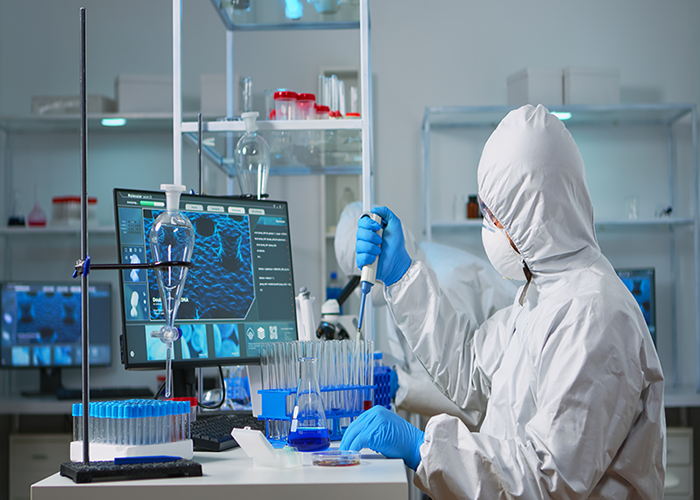Comprehensive Water and Wastewater Treatment Solutions for the Pharmaceutical Industry Using STP, ETP, WTP, WWTP, Industrial RO Systems

India stands among the top global producers of pharmaceuticals, exporting to over 200 countries and fulfilling nearly 20% of the worldwide demand for generic medicines. The country hosts thousands of pharmaceutical manufacturing units, ranging from small-scale producers to multinational giants. This industry is critical not only for the economy but also for public health.
Maharashtra, being an industrial powerhouse, is home to a large concentration of pharmaceutical hubs, particularly in cities like Pune, Mumbai, Nashik, and Aurangabad. The state's pharmaceutical landscape includes formulations, bulk drugs, and R & D centers. With such widespread activity, managing resources like water and ensuring responsible wastewater treatment is vital for sustainable operations.
Water is Critical in Pharmaceutical Manufacturing, Processing, Cleaning, and Quality Control Applications
The pharmaceutical industry consumes a substantial volume of water in various processes, including manufacturing, formulation, cooling, and cleaning. Water is required for active pharmaceutical ingredient (API) synthesis, reactor washing, preparation of drug solutions, and maintaining sterile conditions throughout production lines.
Ultra-pure water (UPW) and purified water are essential in laboratories, tablet coating, and injection preparations. Besides direct use in processes, water is also vital in HVAC systems, boilers, and general plant sanitation. Ensuring a consistent and contaminant-free water supply is key to maintaining product quality and regulatory compliance, especially in export-driven units.
Various Manufacturing and Cleaning Operations Lead to Complex and Contaminated Wastewater Streams
Pharmaceutical facilities generate wastewater from diverse operations, including chemical synthesis, formulation blending, equipment washing, and solvent recovery. Wastewater is also produced in large quantities during the cleaning of reactors, tanks, and pipelines.
In the pharmaceutical sector, water isn’t just a utility—it’s a key ingredient in quality assurance. From manufacturing to hygiene, every drop matters. But with great usage comes great responsibility—effective water treatment ensures environmental safety, product integrity, and operational excellence in this highly sensitive and regulated industry.
Additional wastewater sources include non-contact cooling water, floor washing, and air scrubbers. These activities discharge effluents containing active drug compounds, residual solvents, heavy metals, detergents, and organic pollutants. The variability in waste load makes treatment a technical challenge, demanding industry-specific solutions tailored to the plant's processes and production capacity.
Pharmaceutical Wastewater Contains Toxic Chemicals, Drug Residues, and High Organic Loads
The wastewater from pharmaceutical units is highly variable and often contains hazardous pollutants. Common contaminants include antibiotics, antiseptics, solvents, hormones, and organic acids. Some effluents also carry suspended solids, colorants, and high biological oxygen demand (BOD).
In addition to high chemical content, the presence of active pharmaceutical ingredients (APIs) in wastewater poses serious environmental threats, such as the promotion of antimicrobial resistance. Treating such wastewater demands specialized processes beyond standard domestic effluent treatment, making proper identification and segregation critical at the source.
Customized ETPs and STPs Ensure Pharmaceutical Wastewater Is Treated to Meet Regulatory Norms
Pharmaceutical industries adopt a combination of physical, chemical, and biological processes to treat their wastewater. The most common systems include Effluent Treatment Plants (ETPs) and Sewage Treatment Plants (STPs), tailored to handle toxic and non-toxic waste streams separately.
Treatment begins with primary filtration and chemical neutralization, followed by aerobic or anaerobic digestion and advanced oxidation techniques. In some cases, membrane-based filtration and activated carbon filters are used for final polishing. Strict monitoring is essential to ensure discharge meets CPCB and FDA compliance, especially in units exporting to stringent regulatory markets.
Modern Water Treatment Technologies Enable Recovery and Safe Reuse in Non-Productive Applications
Advanced pharmaceutical units are increasingly investing in water reuse technologies to reduce environmental impact and conserve resources. Techniques like Reverse Osmosis (RO), Ultrafiltration (UF), and Membrane Bioreactors (MBR) are now standard in many facilities for tertiary treatment.
Treated water is reused for floor washing, cooling towers, gardening, and even boiler feed in some cases. Integration of automation, real-time monitoring, and AI-based analytics ensures optimal system performance and predictive maintenance. Not only does this lower operational costs, but it also supports sustainability certifications and green building standards for pharma campuses.
We Provide Tailored Water Treatment Solutions Specifically Designed for Pharmaceutical Manufacturing Units
We offer specialized design, installation, and support services for STP, ETP, WTP, and RO systems for pharmaceutical plants. Our team evaluates your facility's operations to engineer high-efficiency water treatment plants that are compliant with both Indian and international norms.
Whether it's greenfield development or the upgradation of existing infrastructure, we deliver turnkey projects backed by AMCs, operator training, and digital monitoring tools. We ensure minimized downtime, regulatory compliance, and long-term efficiency. By choosing us, clients benefit from industry knowledge, reliable technology, and end-to-end support tailored to pharmaceutical standards.
Conclusion: Building Sustainable Pharmaceutical Operations Through Water Management

Conclusion: Building Sustainable Pharmaceutical Operations Through Water Management
The pharmaceutical industry's reliance on water for production, quality control, and facility operations makes water treatment an absolute necessity. With increasingly strict regulations and global sustainability demands, responsible wastewater management is not just good practice—it's a competitive advantage.
From Maharashtra to the rest of India, pharma companies are adopting innovative treatment technologies to recycle, reuse, and responsibly discharge water. By partnering with expert solution providers, these companies can ensure operational excellence, environmental compliance, and a stronger reputation in global markets. Sustainable water management is the foundation of future-ready pharmaceutical operations.

